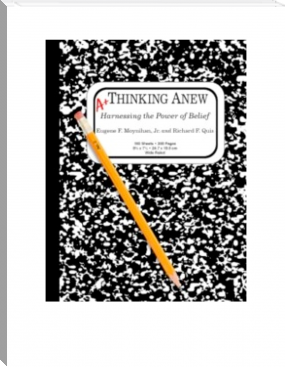Write It Right - Ambrose Bierce (a book to read txt) 📗

- Author: Ambrose Bierce
Book online «Write It Right - Ambrose Bierce (a book to read txt) 📗». Author Ambrose Bierce
an office until formally named (nominated) for it by a convention, or otherwise, as provided by law or custom. So when a man who is moving Heaven and Earth to procure the nomination protests that he is "not a candidate" he tells the truth in order to deceive.
_Cannot_ for _Can_. "I cannot but go." Say, I can but go.
_Capable_. "Men are capable of being flattered." Say, susceptible to flattery. "Capable of being refuted." Vulnerable to refutation. Unlike capacity, capability is not passive, but active. We are capable of doing, not of having something done to us.
_Capacity_ for _Ability_. "A great capacity for work." Capacity is receptive; ability, potential. A sponge has capacity for water; the hand, ability to squeeze it out.
_Casket_ for _Coffin_. A needless euphemism affected by undertakers.
_Casualties_ for _Losses_ in Battle. The essence of casualty is accident, absence of design. Death and wounds in battle are produced otherwise, are expectable and expected, and, by the enemy, intentional.
_Chance_ for _Opportunity_. "He had a good chance to succeed."
_Chin Whiskers_. The whisker grows on the cheek, not the chin.
_Chivalrous_. The word is popularly used in the Southern States only, and commonly has reference to men's manner toward women. Archaic, stilted and fantastic.
_Citizen_ for _Civilian_. A soldier may be a citizen, but is not a civilian.
_Claim_ for _Affirm_. "I claim that he is elected." To claim is to assert ownership.
_Clever_ for _Obliging_. In this sense the word was once in general use in the United States, but is now seldom heard and life here is less insupportable.
_Climb down_. In climbing one ascends.
_Coat_ for _Coating_. "A coat of paint, or varnish." If we coat something we produce a coating, not a coat.
_Collateral Descendant_. There can be none: a "collateral descendant" is not a descendant.
_Colonel_, _Judge_, _Governor_, etc., for _Mister_. Give a man a title only if it belongs to him, and only while it belongs to him.
_Combine_ for _Combination_. The word, in this sense, has something of the meaning of conspiracy, but there is no justification for it as a noun, in any sense.
_Commence_ for _Begin_. This is not actually incorrect, but--well, it is a matter of taste.
_Commencement_ for _Termination_. A contribution to our noble tongue by its scholastic conservators, "commencement day" being their name for the last day of the collegiate year. It is ingeniously defended on the ground that on that day those on whom degrees are bestowed commence to hold them. Lovely!
_Commit Suicide_. Instead of "He committed suicide," say, He killed himself, or, He took his life. For married we do not say "committed matrimony." Unfortunately most of us do say, "got married," which is almost as bad. For lack of a suitable verb we just sometimes say committed this or that, as in the instance of bigamy, for the verb to bigam is a blessing that is still in store for us.
_Compare with_ for _Compare to_. "He had the immodesty to compare himself with Shakespeare." Nothing necessarily immodest in that. Comparison with may be for observing a difference; comparison to affirms a similarity.
_Complected_. Anticipatory past participle of the verb "to complect." Let us wait for that.
_Conclude_ for _Decide_. "I concluded to go to town." Having concluded a course of reasoning (implied) I decided to go to town. A decision is supposed to be made at the conclusion of a course of reasoning, but is not the conclusion itself. Conversely, the conclusion of a syllogism is not a decision, but an inference.
_Connection_. "In this connection I should like to say a word or two." In connection with this matter.
_Conscious_ for _Aware_. "The King was conscious of the conspiracy." We are conscious of what we feel; aware of what we know.
_Consent_ for _Assent_. "He consented to that opinion." To consent is to agree to a proposal; to assent is to agree with a proposition.
_Conservative_ for _Moderate_. "A conservative estimate"; "a conservative forecast"; "a conservative statement," and so on. These and many other abuses of the word are of recent growth in the newspapers and "halls of legislation." Having been found to have several meanings, conservative seems to be thought to mean everything.
_Continually_ and _Continuously_. It seems that these words should have the same meaning, but in their use by good writers there is a difference. What is done continually is not done all the time, but continuous action is without interruption. A loquacious fellow, who nevertheless finds time to eat and sleep, is continually talking; but a great river flows continuously.
_Convoy_ for _Escort_. "A man-of-war acted as convoy to the flotilla." The flotilla is the convoy, the man-of-war the escort.
_Couple_ for _Two_. For two things to be a couple they must be of one general kind, and their number unimportant to the statement made of them. It would be weak to say, "He gave me only one, although he took a couple for himself." Couple expresses indifference to the exact number, as does several. That is true, even in the phrase, a married couple, for the number is carried in the adjective and needs no emphasis.
_Created_ for _First Performed_. Stage slang. "Burbage created the part of Hamlet." What was it that its author did to it?
_Critically_ for _Seriously_. "He has long been critically ill." A patient is critically ill only at the crisis of his disease.
_Criticise_ for _Condemn_, or _Disparage_. Criticism is not necessarily censorious; it may approve.
_Cunning_ for _Amusing_. Usually said of a child, or pet. This is pure Americanese, as is its synonym, "cute."
_Curious_ for _Odd_, or _Singular_. To be curious is to have an inquiring mind, or mood--curiosity.
_Custom_ for _Habit_. Communities have customs; individuals, habits--commonly bad ones.
_Decease_ for _Die_.
_Decidedly_ for _Very_, or _Certainly_. "It is decidedly cold."
_Declared_ for _Said_. To a newspaper reporter no one seems ever to say anything; all "declare." Like "alleged" (which see) the word is tiresome exceedingly.
_Defalcation_ for _Default_. A defalcation is a cutting off, a subtraction; a default is a failure in duty.
_Definitely_ for _Definitively_. "It was definitely decided." Definitely means precisely, with exactness; definitively means finally, conclusively.
_Deliver_. "He delivered an oration," or "delivered a lecture." Say, He made an oration, or gave a lecture.
_Demean_ for _Debase_ or _Degrade_. "He demeaned himself by accepting charity." The word relates, not to meanness, but to demeanor, conduct, behavior. One may demean oneself with dignity and credit.
_Demise_ for _Death_. Usually said of a person of note. Demise means the lapse, as by death, of some authority, distinction or privilege, which passes to another than the one that held it; as the demise of the Crown.
_Democracy_ for _Democratic Party_. One could as properly call the Christian Church "the Christianity."
_Depot_ for _Station_. "Railroad depot." A depot is a place of deposit; as, a depot of supply for an army.
_Deprivation_ for _Privation_. "The mendicant showed the effects of deprivation." Deprivation refers to the act of depriving, taking away from; privation is the state of destitution, of not having.
_Dilapidated_ for _Ruined_. Said of a building, or other structure. But the word is from the Latin _lapis_, a stone, and cannot properly be used of any but a stone structure.
_Directly_ for _Immediately_. "I will come directly" means that I will come by the most direct route.
_Dirt_ for _Earth_, _Soil_, or _Gravel_. A most disagreeable Americanism, discredited by general (and Presidential) use. "Make the dirt fly." Dirt means filth.
_Distinctly_ for _Distinctively_. "The custom is distinctly Oriental." Distinctly is plainly; distinctively, in a way to distinguish one thing from others.
_Donate_ for _Give_. Good American, but not good English.
_Doubtlessly_. A doubly adverbial form, like "illy."
_Dress_ for _Gown_. Not so common as it was a few years ago. Dress means the entire costume.
_Each Other_ for _One Another_. "The three looked at each other." That is, each looked at the other. But there were more than one other; so we should say they looked at one another, which means that each looked at another. Of two, say each other; of more than two, one another.
_Edify_ for _Please_, or _Entertain_. Edify means to build; it has, therefore, the sense of uplift, improvement--usually moral, or spiritual.
_Electrocution_. To one having even an elementary knowledge of Latin grammar this word is no less than disgusting, and the thing meant by it is felt to be altogether too good for the word's inventor.
_Empty_ for _Vacant_. Say, an empty bottle; but, a vacant house.
_Employe_. Good French, but bad English. Say, employee.
_Endorse_ for _Approve_. To endorse is to write upon the back of, or to sign the promissory note of another. It is a commercial word, having insufficient dignity for literary use. You may endorse a check, but you approve a policy, or statement.
_Endways_. A corruption of endwise.
_Entitled_ for _Authorized_, _Privileged._ "The man is not entitled to draw rations." Say, entitled to rations. Entitled is not to be followed by an infinitive.
_Episode_ for _Occurrence_, _Event_, etc. Properly, an episode is a narrative that is a subordinate part of another narrative. An occurrence considered by itself is not an episode.
_Equally as_ for _Equally_. "This is equally as good." Omit as. "He was of the same age, and equally as tall." Say, equally tall.
_Equivalent_ for _Equal_. "My salary is equivalent to yours."
_Essential_ for _Necessary_. This solecism is common among the best writers of this country and England. "It is essential to go early"; "Irrigation is essential to cultivation of arid lands," and so forth. One thing is essential to another thing only if it is of the essence of it--an important and indispensable part of it, determining its nature; the soul of it.
_Even_ for _Exact_. "An even dozen."
_Every_ for _Entire_, _Full_. "The president had every confidence in him."
_Every_ for _Ever_. "Every now and then." This is nonsense: there can be no such thing as a now and then, nor, of course, a number of now and thens. Now and then is itself bad enough, reversing as it does the sequence of things, but it is idiomatic and there is no quarreling with it. But "every" is here a corruption of ever, meaning repeatedly, continually.
_Ex_. "Ex-President," "an ex-convict," and the like. Say, former. In England one may say, Mr. Roosevelt, sometime President; though the usage is a trifle archaic.
_Example_ for _Problem_. A heritage from the text-books. "An example in arithmetic." An equally bad word for the same thing is "sum": "Do the sum," for Solve the problem.
_Excessively_ for _Exceedingly_. "The disease is excessively painful." "The weather is excessively cold." Anything that is painful at all is excessively so. Even a slight degree or small amount of what is disagreeable or injurious is excessive--that is to say, redundant, superfluous, not required.
_Executed_. "The condemned man was executed." He was hanged, or otherwise put to death; it is the sentence that is executed.
_Executive_ for _Secret_. An executive session of a deliberative body is a session for executive business, as distinguished from legislative. It is commonly secret, but a secret session is not necessarily executive.
_Expect_ for _Believe_, or _Suppose_. "I expect he will go." Say, I believe (suppose or think) he will go; or, I expect him to go.
_Expectorate_ for _Spit_. The former word is frequently used, even in laws and ordinances, as a euphemism for the latter. It not only means something entirely different, but to one with a
_Cannot_ for _Can_. "I cannot but go." Say, I can but go.
_Capable_. "Men are capable of being flattered." Say, susceptible to flattery. "Capable of being refuted." Vulnerable to refutation. Unlike capacity, capability is not passive, but active. We are capable of doing, not of having something done to us.
_Capacity_ for _Ability_. "A great capacity for work." Capacity is receptive; ability, potential. A sponge has capacity for water; the hand, ability to squeeze it out.
_Casket_ for _Coffin_. A needless euphemism affected by undertakers.
_Casualties_ for _Losses_ in Battle. The essence of casualty is accident, absence of design. Death and wounds in battle are produced otherwise, are expectable and expected, and, by the enemy, intentional.
_Chance_ for _Opportunity_. "He had a good chance to succeed."
_Chin Whiskers_. The whisker grows on the cheek, not the chin.
_Chivalrous_. The word is popularly used in the Southern States only, and commonly has reference to men's manner toward women. Archaic, stilted and fantastic.
_Citizen_ for _Civilian_. A soldier may be a citizen, but is not a civilian.
_Claim_ for _Affirm_. "I claim that he is elected." To claim is to assert ownership.
_Clever_ for _Obliging_. In this sense the word was once in general use in the United States, but is now seldom heard and life here is less insupportable.
_Climb down_. In climbing one ascends.
_Coat_ for _Coating_. "A coat of paint, or varnish." If we coat something we produce a coating, not a coat.
_Collateral Descendant_. There can be none: a "collateral descendant" is not a descendant.
_Colonel_, _Judge_, _Governor_, etc., for _Mister_. Give a man a title only if it belongs to him, and only while it belongs to him.
_Combine_ for _Combination_. The word, in this sense, has something of the meaning of conspiracy, but there is no justification for it as a noun, in any sense.
_Commence_ for _Begin_. This is not actually incorrect, but--well, it is a matter of taste.
_Commencement_ for _Termination_. A contribution to our noble tongue by its scholastic conservators, "commencement day" being their name for the last day of the collegiate year. It is ingeniously defended on the ground that on that day those on whom degrees are bestowed commence to hold them. Lovely!
_Commit Suicide_. Instead of "He committed suicide," say, He killed himself, or, He took his life. For married we do not say "committed matrimony." Unfortunately most of us do say, "got married," which is almost as bad. For lack of a suitable verb we just sometimes say committed this or that, as in the instance of bigamy, for the verb to bigam is a blessing that is still in store for us.
_Compare with_ for _Compare to_. "He had the immodesty to compare himself with Shakespeare." Nothing necessarily immodest in that. Comparison with may be for observing a difference; comparison to affirms a similarity.
_Complected_. Anticipatory past participle of the verb "to complect." Let us wait for that.
_Conclude_ for _Decide_. "I concluded to go to town." Having concluded a course of reasoning (implied) I decided to go to town. A decision is supposed to be made at the conclusion of a course of reasoning, but is not the conclusion itself. Conversely, the conclusion of a syllogism is not a decision, but an inference.
_Connection_. "In this connection I should like to say a word or two." In connection with this matter.
_Conscious_ for _Aware_. "The King was conscious of the conspiracy." We are conscious of what we feel; aware of what we know.
_Consent_ for _Assent_. "He consented to that opinion." To consent is to agree to a proposal; to assent is to agree with a proposition.
_Conservative_ for _Moderate_. "A conservative estimate"; "a conservative forecast"; "a conservative statement," and so on. These and many other abuses of the word are of recent growth in the newspapers and "halls of legislation." Having been found to have several meanings, conservative seems to be thought to mean everything.
_Continually_ and _Continuously_. It seems that these words should have the same meaning, but in their use by good writers there is a difference. What is done continually is not done all the time, but continuous action is without interruption. A loquacious fellow, who nevertheless finds time to eat and sleep, is continually talking; but a great river flows continuously.
_Convoy_ for _Escort_. "A man-of-war acted as convoy to the flotilla." The flotilla is the convoy, the man-of-war the escort.
_Couple_ for _Two_. For two things to be a couple they must be of one general kind, and their number unimportant to the statement made of them. It would be weak to say, "He gave me only one, although he took a couple for himself." Couple expresses indifference to the exact number, as does several. That is true, even in the phrase, a married couple, for the number is carried in the adjective and needs no emphasis.
_Created_ for _First Performed_. Stage slang. "Burbage created the part of Hamlet." What was it that its author did to it?
_Critically_ for _Seriously_. "He has long been critically ill." A patient is critically ill only at the crisis of his disease.
_Criticise_ for _Condemn_, or _Disparage_. Criticism is not necessarily censorious; it may approve.
_Cunning_ for _Amusing_. Usually said of a child, or pet. This is pure Americanese, as is its synonym, "cute."
_Curious_ for _Odd_, or _Singular_. To be curious is to have an inquiring mind, or mood--curiosity.
_Custom_ for _Habit_. Communities have customs; individuals, habits--commonly bad ones.
_Decease_ for _Die_.
_Decidedly_ for _Very_, or _Certainly_. "It is decidedly cold."
_Declared_ for _Said_. To a newspaper reporter no one seems ever to say anything; all "declare." Like "alleged" (which see) the word is tiresome exceedingly.
_Defalcation_ for _Default_. A defalcation is a cutting off, a subtraction; a default is a failure in duty.
_Definitely_ for _Definitively_. "It was definitely decided." Definitely means precisely, with exactness; definitively means finally, conclusively.
_Deliver_. "He delivered an oration," or "delivered a lecture." Say, He made an oration, or gave a lecture.
_Demean_ for _Debase_ or _Degrade_. "He demeaned himself by accepting charity." The word relates, not to meanness, but to demeanor, conduct, behavior. One may demean oneself with dignity and credit.
_Demise_ for _Death_. Usually said of a person of note. Demise means the lapse, as by death, of some authority, distinction or privilege, which passes to another than the one that held it; as the demise of the Crown.
_Democracy_ for _Democratic Party_. One could as properly call the Christian Church "the Christianity."
_Depot_ for _Station_. "Railroad depot." A depot is a place of deposit; as, a depot of supply for an army.
_Deprivation_ for _Privation_. "The mendicant showed the effects of deprivation." Deprivation refers to the act of depriving, taking away from; privation is the state of destitution, of not having.
_Dilapidated_ for _Ruined_. Said of a building, or other structure. But the word is from the Latin _lapis_, a stone, and cannot properly be used of any but a stone structure.
_Directly_ for _Immediately_. "I will come directly" means that I will come by the most direct route.
_Dirt_ for _Earth_, _Soil_, or _Gravel_. A most disagreeable Americanism, discredited by general (and Presidential) use. "Make the dirt fly." Dirt means filth.
_Distinctly_ for _Distinctively_. "The custom is distinctly Oriental." Distinctly is plainly; distinctively, in a way to distinguish one thing from others.
_Donate_ for _Give_. Good American, but not good English.
_Doubtlessly_. A doubly adverbial form, like "illy."
_Dress_ for _Gown_. Not so common as it was a few years ago. Dress means the entire costume.
_Each Other_ for _One Another_. "The three looked at each other." That is, each looked at the other. But there were more than one other; so we should say they looked at one another, which means that each looked at another. Of two, say each other; of more than two, one another.
_Edify_ for _Please_, or _Entertain_. Edify means to build; it has, therefore, the sense of uplift, improvement--usually moral, or spiritual.
_Electrocution_. To one having even an elementary knowledge of Latin grammar this word is no less than disgusting, and the thing meant by it is felt to be altogether too good for the word's inventor.
_Empty_ for _Vacant_. Say, an empty bottle; but, a vacant house.
_Employe_. Good French, but bad English. Say, employee.
_Endorse_ for _Approve_. To endorse is to write upon the back of, or to sign the promissory note of another. It is a commercial word, having insufficient dignity for literary use. You may endorse a check, but you approve a policy, or statement.
_Endways_. A corruption of endwise.
_Entitled_ for _Authorized_, _Privileged._ "The man is not entitled to draw rations." Say, entitled to rations. Entitled is not to be followed by an infinitive.
_Episode_ for _Occurrence_, _Event_, etc. Properly, an episode is a narrative that is a subordinate part of another narrative. An occurrence considered by itself is not an episode.
_Equally as_ for _Equally_. "This is equally as good." Omit as. "He was of the same age, and equally as tall." Say, equally tall.
_Equivalent_ for _Equal_. "My salary is equivalent to yours."
_Essential_ for _Necessary_. This solecism is common among the best writers of this country and England. "It is essential to go early"; "Irrigation is essential to cultivation of arid lands," and so forth. One thing is essential to another thing only if it is of the essence of it--an important and indispensable part of it, determining its nature; the soul of it.
_Even_ for _Exact_. "An even dozen."
_Every_ for _Entire_, _Full_. "The president had every confidence in him."
_Every_ for _Ever_. "Every now and then." This is nonsense: there can be no such thing as a now and then, nor, of course, a number of now and thens. Now and then is itself bad enough, reversing as it does the sequence of things, but it is idiomatic and there is no quarreling with it. But "every" is here a corruption of ever, meaning repeatedly, continually.
_Ex_. "Ex-President," "an ex-convict," and the like. Say, former. In England one may say, Mr. Roosevelt, sometime President; though the usage is a trifle archaic.
_Example_ for _Problem_. A heritage from the text-books. "An example in arithmetic." An equally bad word for the same thing is "sum": "Do the sum," for Solve the problem.
_Excessively_ for _Exceedingly_. "The disease is excessively painful." "The weather is excessively cold." Anything that is painful at all is excessively so. Even a slight degree or small amount of what is disagreeable or injurious is excessive--that is to say, redundant, superfluous, not required.
_Executed_. "The condemned man was executed." He was hanged, or otherwise put to death; it is the sentence that is executed.
_Executive_ for _Secret_. An executive session of a deliberative body is a session for executive business, as distinguished from legislative. It is commonly secret, but a secret session is not necessarily executive.
_Expect_ for _Believe_, or _Suppose_. "I expect he will go." Say, I believe (suppose or think) he will go; or, I expect him to go.
_Expectorate_ for _Spit_. The former word is frequently used, even in laws and ordinances, as a euphemism for the latter. It not only means something entirely different, but to one with a
Free e-book «Write It Right - Ambrose Bierce (a book to read txt) 📗» - read online now
Similar e-books:





Comments (0)